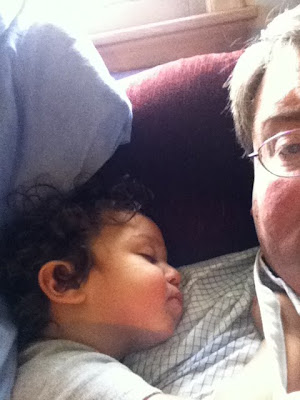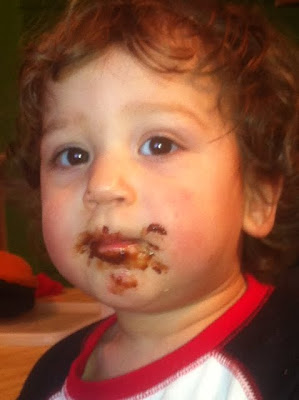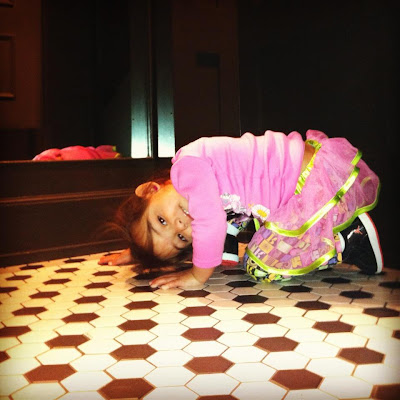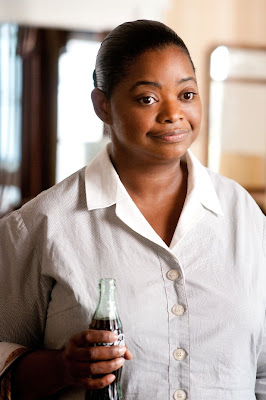Lately it seems to me that more and more people are talking about "finding a placement" for their kids who seem out of control. It's almost an automatic thought now that so many of us are connecting online and know that there are lots of families who have found residential treatment options for their kids. But now it seems that we sometimes head there way too quickly.
As a parent who has had three children in residential setting for a brief period of time, I feel like I should share the reasons why we no longer look at that as a viable option for our kids, even though a couple of the ones at home now are as difficult or more difficult than the ones who ended up in residential 8 years ago.
Before I start this post I want to make something very clear. If you, your other children, or your "out-of-control" child are truly not safe, then finding a placement is your only option. Notice that I did not say that disrupting or dissolving the adoption is an option -- I said finding a residential placement. I am working on some thoughts about disruption and dissolutions for a later post when I get brave enough to address it.
I also want to be clear that this is based on my observations while my kids were in about 7 or 8 different facilities. There may be others that are different and I'd love to hear about that, but this was our experience.
So, here are some myths about residential treatment.
1) Residential treatment will fix a kid. It doesn't happen. The kids sometimes learn a few things -- but, as my friend Kari pointed out when we talked about this today -- children with FASD have difficulty generalizing their learning so they may not be able to apply what they learned in residential to a home setting" In addition, if you haven't figured it out yet, organic brain damage and mental illness can't be fixed.
2) Staff at Residential Treatment Centers are all very educated experts. We often think of these places as being filled with individuals who know all about brain trauma, FASD, and the other issues our kids face. It is possible that there is one, possibly a few, of those people at an RTC, but the people who have daily interaction with the kids often aren't experts at all. Of all the RTCs that our kids were in, the one that was MOST effective had these qualifications for the staff who were supervising the kids: A GED and a Driver's License. (and based on who they hired, preferably big enough to restrain a large teenager). I looked up the hiring qualifications once just out of curiosity. Sure, in order to get licensed the facilities have to have a certain number of professionals there and they do see the kids regularly. But not every staff member is trained and clued into how to help our kids.
3) Residential Treatment Centers have all kinds of new methodologies to help kids. In all actuality, most RTCs have level systems which are very similar to a sticker chart that we have tried to use with our kids for years without success. One of the most disturbing things about some of these places is that it can take a very long time to get up a level, but you can be dropped multiple levels in a day. One of the most difficult things to see was when Mike was in a facility and he was 3 days away from Level 3 having worked for several months to get there. At level three he was finally going to be awarded a home visit. He impulsively grabbed a bottle of conditioner that he saw in a staff members office and found himself back at level zero, looking at three months to get back to where he could have a home visit. What followed that, as you can imagine, was several weeks where he was depressed and not motivated at all to even try to get off level zero and his behaviors plummeted.
4) Residential Treatment is available to adoptive families without a hassle or court or county involvement. Unless you are independently wealthy and can afford the $150 or more a day that these places cost, you will need to have the support of your county and often an open child protection case in order to access this for your child. This can create a very difficult situation that never seems to end. I know very few stories of peaceful and cooperative relationships with counties when a family is trying to access this level of services for a child. Often there is conflict, accusations, investigations, criticism, and the involvement of many people in the life of your family who have varying agendas. It's often not pleasant.
5) You will be an equal and valued member of the treatment team by RTC staff. I could give hoards of examples of how this was not the case when our kids were in treatment. County workers, Guardian ad litems, therapists, and even our kids themselves had more input into the plan for our kids than we did. We are both post-Master's level educated professionals who are articulate and bright, and we were treated as much less than that once we opened our doors to the "system" to get help for our kids.
6) A child or teen will learn to trust you more after being in residential treatment. This certainly has not been our experience. Our kids learned to be incredibly manipulative in order to get their way when it came to placements and they were successful in convincing many people of things that simply were not true. They were empowered to trust us less and rely more on those who they felt could make things happen in their favor.
7) The relationships with peers in residential treatment will be healthy, wholesome, and a part of their healing. Basically RTCs are full of the kind of kids that we don't want our children hanging out with. They form alliances with these kids, and, according to Mike, learn how to be criminals by hanging out with them. He also claims to have been introduced to drugs while there. In addition, he developed a network of individuals across the state that would harbor them when they ran away from home.
8) When a child leaves residential he/she will be grateful to be home and thankful that you gave them the opportunity to heal while away. It's the opposite. Our kids came home angry that we "locked them up" and to day do not recognize that we did it with their best interests in mind. One of them is still very angry and talks about it often.
9) Residential Treatment will help kids learn what they need to learn to function at home and in society. Unfortunately, RTCs are set up to be revolving doors. The expectations are set up and the reward is to go back home. However, just because a kid can function in an RTC doesn't mean they can function the same way in a home setting, so they work real hard to get home... and then within a few weeks they fall apart because they don't have the same amount of structure. That results in them feeling like failures, the family feeling like a failure, and them heading right back to where they came from. Eventually, as our kids have told us, they end up "institutionalized" and jail is the only place they can function as adults.
10) Residential treatment is a better place for some kids than a family. Children and teens need relationships with a completely committed parent. If a child can't be safe at home, than a parent who is very supportive of them in residential is the next best thing. But if there is any way to safely keep a child at home, that is the best place for them.
Many people now are choosing residential for one of two reasons: a) Because they really believe that it is the best place for their child, which as you can see above, I really don't believe it is. or b) because they are tired of dealing with the behaviors that their children are displaying and they want a break from the daily responsibility and drain that a child is on them.
Grant it, I have been there and I am there with a couple of our kids. I would love to have a break from their crazy thinking, their destruction of our home, their threats and verbal abuse, and their oppositional and uncooperative behaviors. I would love to have their siblings be able to enjoy a family meal without an outburst or have a fun family activity without a meltdown. But the bottom line is that our kids are safe and so are we -- and therefore I need to figure out ways to connect with my kids, not send them away with an idealized dream that they are going to get fixed.
Wow, this is harsh. I wasn't intending it to be this way but I guess I have a lot of anger about what our family and our kids went through as we attempted to seek help.
You may feel like I have just dashed your hopes because you were counting on residential to be a solution, so I don't want to leave you without hope or an answer. After my years of experience, I am more convinced (and if you've heard me speak you know that I talk about this every change I get) that as parents we are the ones who need to change in order for our kids to heal. Our responses to them -- choosing not to escalate them or argue with them -- is what will make a difference. Using approaches that are calming and relationship-building instead of consequencing and condemning will go a lot farther than sending them away to get "fixed" by a bunch of "professionals."
Especially those of you who are dealing with younger children -- using a different approach can help you avoid the things we have been through (that I touched on above). Using attachment based models like
nurturing heart, or
PLACE or
empowered to connect, or
beyond consequences can make all the difference.
I won't be surprised if there are those who disagree with me and I really hope that is the case. I hope that there are stories out there of families who have kids who were greatly helped by residential and who had positive and helpful relationships with the professionals who were involved. I'd love to hear them.
But for now I am beyond convinced that UNLESS there is a serious safety issue, Residential Treatment is not the answer.

















